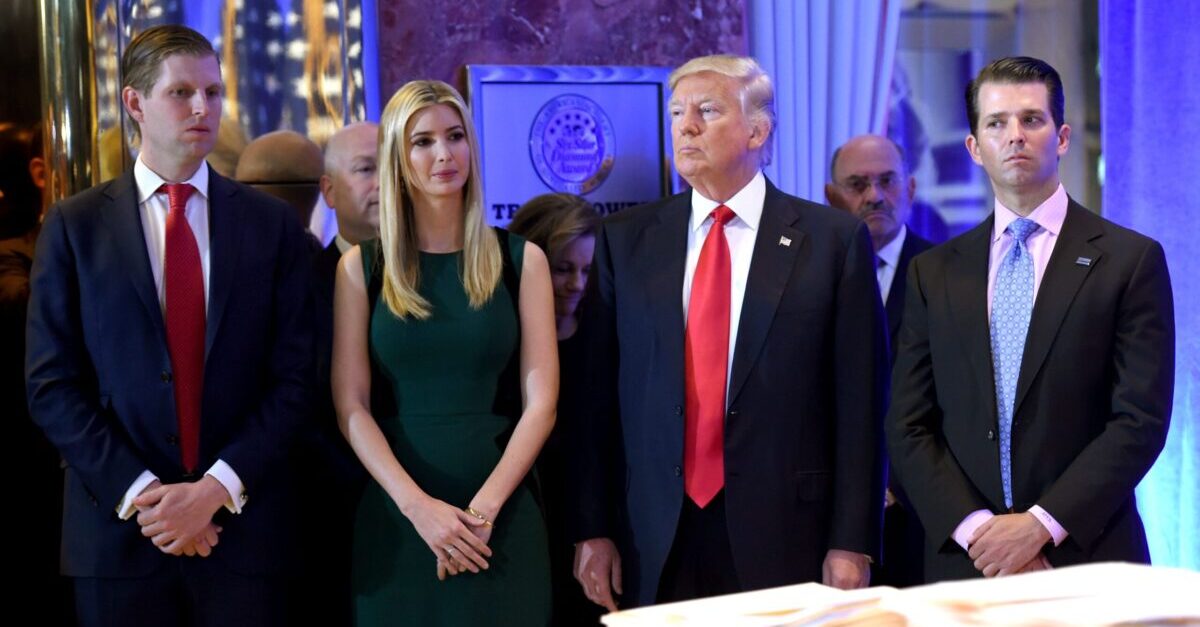
Former President Donald Trump and two of his adult children appealed a Manhattan judge’s order forcing them to sit for depositions in the New York attorney general’s civil investigation into their finances.
Attorney General Letitia James (D), who has been investigating the family and their business since 2019, slammed the maneuver as a delay tactic.
“Donald J. Trump, Donald Trump, Jr., and Ivanka Trump were ordered by the court to comply with our lawful investigation into Mr. Trump and the Trump Organization’s financial dealings,” James wrote. “While they have the right to seek a delay, they cannot deter us from following the facts and the law wherever they may lead. Make no mistake: My office will continue to pursue this case without fear or favor because no one is above the law.”
Trump’s attorney Ron Fischetti signaled that the family would appeal any ruling against them during a hearing on Feb. 17, asking Manhattan Supreme Court Justice Arthur Engoron to give the family time to fight any adverse ruling.
“If you decide that this subpoena cannot be quashed, please—I beg you, I implore you—give your decision but give us time to appeal,” Fischetti pleaded at the time.
Hours later, Engoron released a scathing order giving them 21 days before their deposition. The judge remarked that the thousands of files that he inspected privately showed “copious evidence of possible financial fraud” to justify a deposition.
Trump’s attorneys argue that the ruling puts them in a bind.
If they assert their Fifth Amendment rights not to incriminate themselves, those non-answers cannot be used against them in a criminal investigation by Manhattan District Attorney Alvin Bragg (D), which is officially ongoing, if reportedly on the ropes. Trump son Eric Trump reportedly asserted his right against self-incrimination in response to more than 500 questions asked by the attorney general’s office in October 2020.
Though the U.S. Constitution forbids drawing any adverse inference from those demurrals in criminal proceedings, the same is not true for civil investigations. Trump’s lawyers argue the depositions make them choose between their constitutional rights making themselves vulnerable in civil litigation.
Engoron brushed those concerns aside in his ruling.
“The target of a hybrid civil/criminal investigation cannot use the Fifth Amendment as both a sword and a shield; a shield against questions and a sword against the investigation itself,” he wrote. “When they are deposed, the New Trump Respondents will have the right to refuse to answer any questions that they claim might incriminate them, and that refusal may not be commented on or used against them in a criminal prosecution. However, there is no unfairness in allowing the jurors in a civil case to know these refusals and to draw their own conclusions.”
Trump’s attorney Alina Habba did not immediately respond to an email requesting comment.
Earlier this week, the Manhattan District Attorney’s criminal probe of Trump lost two key players, as lead prosecutors Mark Pomerantz and Carey Dunne resigned. Their unexpected withdrawals were widely interpreted as a sign that Bragg did not believe a case could be brought against Trump, who has attacked both the civil and criminal probes as politically motivated.
[Image via TIMOTHY A. CLARY/AFP via Getty Images]